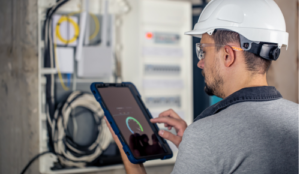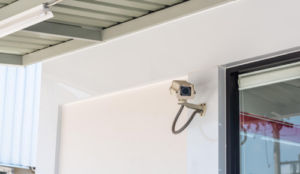As a business owner, it is likely that you have a lot of other things on your mind instead of cleaning your workplace. However, it is an important aspect of the work environment. In fact, a study by the University of Arizona found that employees who work in a clean environment are up to 15% more productive than those who work in a cluttered space. With that in mind, you might be wondering how to put together an effective workplace cleaning routine that ensures your employees feel collected and productive whilst at work. Have no fear, Dependable are here to help with the eight most important elements to include in your cleaning schedule. Without further ado, let’s jump into it.
#1 Removing dirt and dust
Dust is a menace. Not only does it look unappealing, but it can actually cause your employees to be ill with irritations or infections, therefore increasing their amount of sick leave. As well as affecting the health of your workforce, dust and dirt can cause slip hazards. Therefore, regular vacuuming and dusting/polishing is an essential aspect of your cleaning schedule.
#2 Facilities and toilets
It is a legal requirement that all workspaces have welfare facilities and a safe working environment for everyone that works there. This includes the right number of toilets and washbasins, drinking water and somewhere to eat meals; a clean workplace with a reasonable working temperature, good ventilation, suitable lighting and the right amount of space; and well-maintained equipment, with windows that can be easily opened and cleaned.
In addition to this, as part of the toilet requirements, employers have to provide clean facilities – preferably with walls and floors tiled to make them easier to clean; a supply of toilet roll and somewhere to dispose of sanitary items; hot and cold running water; enough soap; a way of drying hands. Where possible, separate toilet facilities for men and women are preferred. Failing that, the toilets must have lockable doors.
#3 Floors
Regular cleaning of the floors is important, not just for aesthetic reasons, but also to avoid trips and slips in the workplace, especially if something has been split. Slips, trips and falls are the most common cause of serious injury to workers. According to the HSE Non-fatal injuries at work report, slips, trips or falls accounted for 30% of employer reported non-fatal injuries in 2021-22.
#4 Spills
As already mentioned, it is essential to mop up spills as soon as they’ve happened in order to avoid preventable injuries. It is important to ensure that you have the appropriate cleaning products so that the spillage is correctly removed. Also make sure that the waste products are also properly disposed of, as the substance could be a hazard.
#5 Corridors and stairways
Stairways and corridors are a means of getting to where you need to be, not a storage room. It is important that they are always kept clear and clean so that they will not cause crowding, blocked doorways or other hazards in the event of an emergency evacuation.
#6 Waste removal
Regularly disposing of waste is an easy and important part of having a clean working environment. Waste isn’t just an eyesore, it can be a hazard, causing accidents and creating a perfect environment for bacteria and germs to thrive, leading to illnesses. Make sure there are plenty of bins around to make it easy for the team to throw their rubbish in the correct place, rather than littering.
And don’t forget about recycling bins, especially for work environments such as offices or classrooms. In these kinds of settings, paper, plastic and cardboard tends to pile up, so why not take the extra step and recycle? It’s a small change that can make a big difference.
#7 Lighting
One thing that you might not think of in terms of regular cleaning is your lighting. However, when you think about it, the correlation between poor lighting and hazardous situations is obvious. According to the EarthTrack Group, poor lighting is one of the eight leading factors behind workplace accidents. Because of this, cleaning, repairing and replacing your light fittings should be a regular feature of your cleaning schedule in order to keep the environment safe.
#8 Maintenance
The last and possibly most important factor to think about when planning your workplace cleaning schedule is maintenance. For one, it is critical to ensure the lifespan of your facility, but regular maintenance (including cleaning) is also an easy way to save you money in the long run.
How Dependable can help
At Dependable, we have spent the last 20 years building an outstanding reputation by providing high-quality commercial cleaning services to businesses and estates as part of our soft facilities management services.
We offer a range of different commercial cleaning services, including carpet cleaning, schedule building and painting and decorating, and can tailor our services to your requirements.
Contact us today to discover how we can help you.




